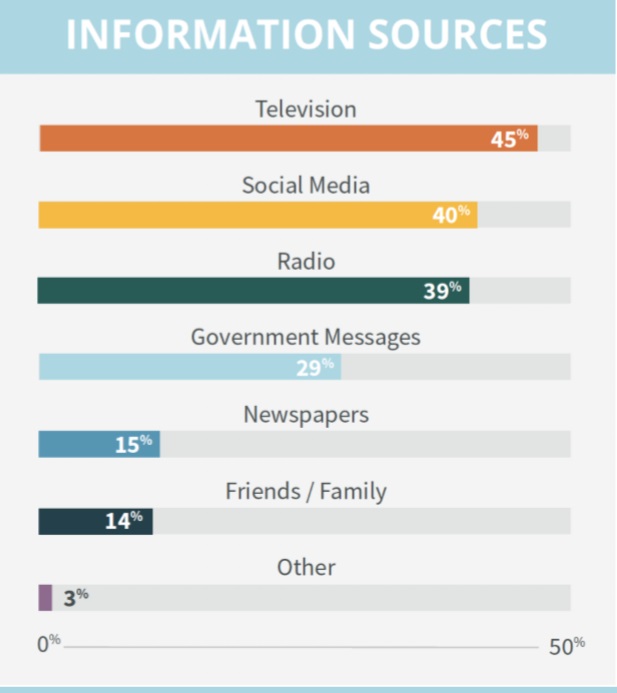 Concern over food
Concern over food
One of the greatest concerns surrounding the coronavirus outbreak is the impact it will have on food security, especially in countries that already suffer from high food insecurity. The United Nations’ Food and Agriculture Organization has already warned of an impending food crisis if actions are not taken to protect supply chains and distribute food to vulnerable populations.
The study found that respondents are already concerned about having enough to eat: 80% reported that within the 7 days before the survey they had been worried about not having enough food to eat due to lack of money or other resources. This figure was highest in the DRC (88%), Rwanda (87%) Kenya (86%) and Uganda (86%).
As coronavirus continues to spread throughout sub-Saharan Africa it will result in more lockdowns, changes in food security, and economic declines. While much of the world’s attention in recent weeks has been on the high number of cases in developed countries including Italy and the United States, coronavirus could have a devastating effect on those in sub-Saharan Africa, Latin America, and other emerging regions.
In order to better understand the effects of the virus more on-the-ground feedback is needed. Studies like this one done through safe, remote methods of data collection can help governments, development organisations, and consumer businesses better prepare themselves for what is to come.
The study found that while coverage of coronavirus continues to dominate the media, reports of misinformation around the virus spread, particularly through social media channels and messaging platforms such as WhatsApp.
In an interesting twist, the study found that TV is the most common information source for coronavirus-related news, with 45% saying that TV is a source of information, but that social media was close behind, with 40% getting information from social media.
For those aged 35 and older, social media was slightly less likely to be an information source, cited by 37%. Of those who get information from social media, 46% are turning to media outlets, 22% to health organisations, 15% to governments, and 14% to friends/family.
The study also found that media consumption habits have changed in general due to the coronavirus outbreak. In Kenya, GeoPoll Audience Measurement’s ratings data found that average TV viewership was up overall in between the hours of 6am – 12pm, while radio listenership during the same time period declined.
It observed a move of TV audiences away from entertainment channels and towards news channels, likely driven by a desire to stay informed on COVID-19. In this study, it was also found that media consumption is up, with 66% saying they are consuming more media, compared to 15% who are consuming less, and 20% who report no change in media consumption.
****
CLICK TO READ ONLINE MAGAZINE HERE
 The Independent Uganda: You get the Truth we Pay the Price
The Independent Uganda: You get the Truth we Pay the Price


